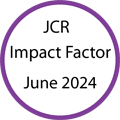Clinical Relevance of Anticoagulation and Dual Antiplatelet Therapy to the Outcomes of Patients With Atrial Fibrillation and Recent Percutaneous Coronary Intervention With Stent
Abstract
Background: Chronic atrial fibrillation (AF), coexisting with a history of recent coronary angioplasty with stent (PCI-S), represents an encoded indication for oral anticoagulation (OAC) with warfarin plus dual antiplatelet therapy (DAPT).
Methods: Using a retrospective cohort study, we determined the respective impacts on cardiovascular outcomes of three different pharmacologic regimens, i.e., triple therapy (TT) with warfarin + clopidogrel and aspirin, dual therapy (DT) with warfarin + clopidogrel or aspirin, and DAPT with clopidogrel + aspirin. Outcomes of interest were all-cause mortality, ischemic cardiac events, ischemic cerebral events, and bleeding events. The inclusion criterion was the coexistence of an indication for OAC (e.g., chronic AF) with an indication for DAPT due to recent PCI-S.
Results: Among the 98 patients enrolled, 48 (49%), 31 (31.6%), and 19 (19.4%) patients were prescribed TT, DT, and DAPT, respectively. Throughout a mean follow-up of 378 15.7 days, there were no significant differences between the three regimens for all abovementioned outcomes. In particular, the total frequency of major bleeding was similar in the three groups: five cases (10.4%) in TT, one case (3.22%) in DT and no case in DAPT groups (Chi-square test, P = 0.1987).
Conclusions: TT, DT and DAPT displayed similar efficacy and safety. Although the superiority of OAC vs. DAPT for stroke prevention in AF patients has been demonstrated by previous randomized trials, a smaller frequency of high thromboembolic risks features in DAPT group of the present study may have prevented the observation of a higher incidence of ischemic stroke in this group.
J Clin Med Res. 2016;8(2):153-161
doi: http://dx.doi.org/10.14740/jocmr2443w











